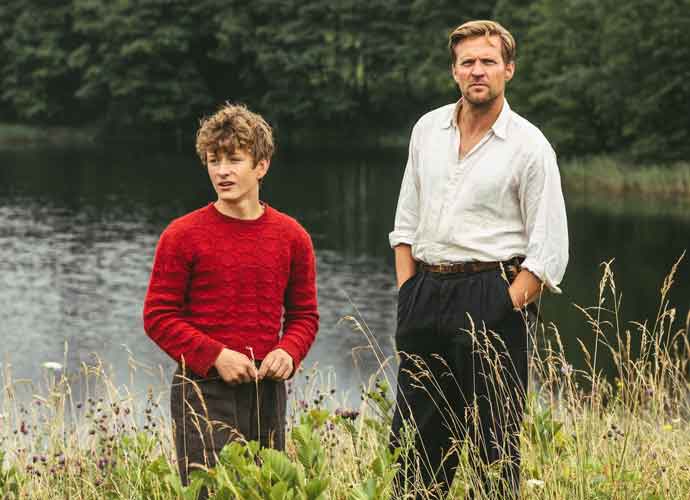‘Out Stealing Horses’ Movie Review: Time-Bending Tale of Fatherhood Comes Together In The End

3.5/5
Far before COVID-19, all the way back in the antiquarian year of 1999, there was a man who beat everyone else to the self-isolation punch. His name was Trond, and he chose to remove himself from society in a rural area along the Norway-Sweden border.
Sound familiar? Probably not, because none of this actually happened: Trond (played by Stellan Skarsgård) is the main character of Out Stealing Horses, based on the popular novel of the same name by Per Petterson. As so often happens when fictional characters flee to far-off locales in search of isolation, Trond happens upon Lars, a figure from a particularly crucial summer in Trond’s upbringing whose presence inspired some unwelcome memories.
From its beginning, Out Stealing Horses is a bifurcated film: the numerous flashback sequences (all-in-all comprising around 2/3 of the movie’s runtime) read something like a particularly grim coming-of-age story, while the scenes that focus on Trond in the present reveal the darker sides that narrative such as these often ignore: that the process of growing up can entail a certain trauma that follows one around well into and past adulthood.
To divulge too much of the plot would ruin some of the surprises that make Out Stealing Horses an engaging film, but there’s no getting around the fact that the movie is highly preoccupied with the idea of fatherhood. Trond’s father, played with a remarkable complexity by Tobias Santelmann, is clearly a figure towards which adult Trond has a profound ambivalence, and director Hans Petter Moland slowly strings the audience along, revealing new crooks and corners of their relationship with each new scene.
The deliberate pacing of the film and its reticence in giving the audience the full picture can prove frustrating for much of its runtime, but the payoff ends up being well worth the wait. The plot is ultimately a simple one, but the situations in which the characters find themselves ask us to consider aspects of our humanity we very rarely think about.
While the movie’s time-hopping structure and ham-fisted voice-over narration is stylistically a little clunky, the effect is a powerful one: not only do we get to see a profoundly formative episode for Trond, we get to see what the aftermath looks like too. We’re ultimately reminded how time can alchemize traumatic experiences, causing them to elicit responses that may initially seem inappropriate but are in fact the only ways that those involved can cope.
It would be a mistake to force an interpretation onto a film with this many emotional layers to it, but it undeniably invites a form of self-reflection that few films do. The craft on display may be a tad underwhelming, but it’s hard to watch the credits roll without feeling as though you’ve peered into a crevice of the human spirit long ignored.
RELATED ARTICLES
Get the most-revealing celebrity conversations with the uInterview podcast!







Leave a comment